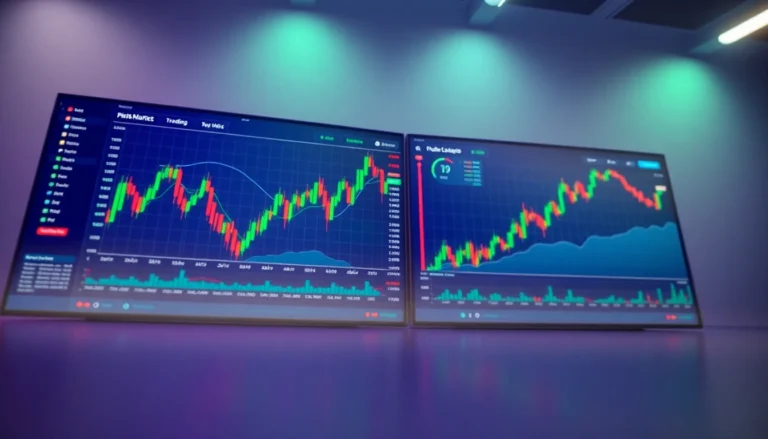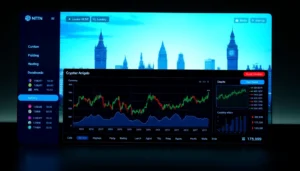Understanding the Fundamentals of Best Investment Funds UK
Selecting the best investment funds in the UK requires a comprehensive understanding of several core principles. Investors should focus on funds that align with their financial goals, risk appetite, and investment horizon. The UK investment landscape offers a diverse array of options, ranging from actively managed equity funds to passively tracking index funds, mutual funds, and exchange-traded funds (ETFs). To determine the optimal choice, investors must evaluate the fundamental qualities that set top-performing funds apart in a competitive market.
What Makes a Fund the Best Choice in the UK Market?
The best investment funds in the UK exhibit a combination of consistent performance, transparent management, and alignment with investor values. A top fund demonstrates a proven track record of delivering sustainable returns over multiple market cycles. Additionally, transparency regarding investment strategies and fee structures reassures investors of integrity and accountability. The fund’s management team’s experience and reputation further influence its standing, ensuring that investment decisions are made with expertise and discipline. Sustainable investment considerations such as ESG (Environmental, Social, Governance) factors are increasingly integral to branding and investor preference for funds that promote responsible investing.
Key Factors Influencing Investment Fund Performance
Several crucial indicators influence a fund’s performance, including asset allocation, diversification, fund management expertise, and fee efficiency. Proper asset allocation ensures a balanced approach to risk and reward, while diversification reduces exposure to individual market shocks. Skilled fund managers leverage their market insights and analysis to navigate volatility and capitalize on opportunities. Moreover, low and transparent fees, including management charges and transaction costs, can significantly enhance net returns over time, especially given the impact of compounding. Monitoring these factors regularly helps investors maintain an optimal portfolio aligned with their long-term goals.
Common Myths About Investing in UK Funds
One widespread misconception is that higher-cost funds automatically outperform cheaper alternatives. However, research shows that fund fees often have a larger impact on long-term returns than fund managers’ skill alone. Another myth is that past performance guarantees future results; while performance history is an essential consideration, it isn’t a definitive predictor. Additionally, many investors believe that active management always exceeds passive strategies, whereas in certain market conditions, index funds can outperform by offering lower costs and consistent tracking of market indices.
Evaluating and Comparing Top Investment Funds in the UK
To identify the best funds, investors should rely on rigorous evaluation criteria, including performance metrics, management reputation, fees, and transparency. The process involves analyzing historical returns, risk-adjusted performance, and consistency across different economic cycles.
Performance Metrics and Historical Returns
Metrics such as total return, annualized performance, and comparison against benchmark indices are fundamental in assessing funds. Sharpe ratio, which adjusts returns based on risk, provides insights into risk-adjusted performance. For example, a fund with a 10-year annualized return of 8% versus its benchmark’s 6% provides a measurable advantage. However, investors must scrutinize the consistency of these returns, examining both bull and bear markets to understand resilience and adaptability.
Fund Management Quality and Reputation
Trustworthy funds are managed by seasoned professionals with a clear investment philosophy and track record. Due diligence involves reviewing fund manager tenure, past successes, and transparency about investment processes. Reputable fund houses such as Vanguard UK, Schroders, or Fidelity have established frameworks prioritizing risk management and client interests.
Fees, Charges, and Cost Transparency
Fees impact long-term performance significantly. Look for funds with transparent fee structures—management fees, entry/exit charges, and ongoing operational costs—that are justified by added value. For instance, passive funds typically charge lower fees, often below 0.20%, while actively managed funds may range from 0.50% to over 1%. Comparing these costs alongside performance helps determine true net returns. Utilizing tools and resources that display aggregated fee data simplifies this process.
Practical Steps to Invest in the Best Funds UK
Once suitable funds are identified, the next phase involves strategic investment execution. Choosing the right platform and structuring your portfolio effectively are crucial for long-term success.
Choosing the Right Investment Platform
A reliable platform provides user-friendly access, low transaction costs, and comprehensive research tools. Consider platforms such as Hargreaves Lansdown, AJ Bell, or Interactive Investor, which offer extensive fund selections, transparent fee structures, and educational resources. Assess platform features, customer support quality, and integration with other financial products to optimize your investment experience.
Portfolio Diversification Strategies
Diversification minimizes risk by spreading investments across various asset classes, sectors, and geographic regions. A diversified portfolio might include a mix of UK equity funds, international ETFs, bond funds, and possibly alternative investments such as real estate or commodities. Regular rebalancing ensures the portfolio maintains its target allocations and adapts to market changes.
Timing and Risk Management Tips
Effective timing involves avoiding emotional decision-making and adopting a disciplined approach—investing steadily over time (pound-cost averaging) and maintaining patience during market downturns. Risk management techniques include setting stop-loss orders, defining clear investment goals, and maintaining an adequate cash reserve to respond to unforeseen circumstances. Staying informed about market trends and economic indicators can also refine your entry and exit points for investments.
Performance Monitoring and Fund Reassessment
Active monitoring ensures your investment portfolio remains aligned with your goals and adapts to market dynamics. Regular reviews and strategic reassessment are vital for sustained growth.
Regular Portfolio Reviews
Schedule periodic evaluations—quarterly or biannually—to track fund performance against benchmarks. Consider quarterly reports, news updates, and performance summaries. During reviews, analyze whether the fund continues to meet your risk and return expectations.
Responding to Market Changes
Respond proactively to economic developments, policy changes, and sector shifts. For example, unexpected interest rate hikes or geopolitical tensions might warrant rebalancing. Avoid impulsive decisions by analyzing market fundamentals and consulting with financial advisors when necessary.
Utilizing Professional Advice and Resources
Financial advisors and research tools can provide valuable insights, especially during turbulent markets. Leveraging data from independent sources like Morningstar, Trustnet, or Morningstar’s rankings helps make informed choices. Professional advice is especially critical for complex portfolios or high-net-worth individuals seeking tailored strategies.
Future Trends in UK Investment Funds
The investment landscape in the UK is constantly evolving, influenced by economic, political, technological, and sustainability trends. Staying abreast of these developments arms investors with the knowledge to adapt and capitalize on emerging opportunities.
Impact of Economic and Political Developments
Brexit, regulatory reforms, and fiscal policies shape market conditions. Investors should monitor legislative changes affecting pension regulations, tax incentives, and fund regulation. For example, government initiatives supporting green energy or digital transformation can open avenues for targeted investments.
Sustainable and Ethical Investment Options
Environmental, social, and governance (ESG) investing continues to rise in popularity, driven by investor demand for responsible funds. Many UK funds now integrate ESG criteria into their investment strategies, aligning financial growth with societal benefits. Evaluating ESG scores and sustainability reports becomes essential in selecting future-proof investments.
Technological Innovations and Data Tools
Advanced data analytics, artificial intelligence, and robo-advisors are transforming investment management. These innovations enable more precise risk assessment, personalized portfolio construction, and real-time performance tracking. Staying current with technological trends ensures investors leverage cutting-edge tools for optimal outcomes.
In conclusion, selecting the Best Investment Funds UK requires a strategic approach rooted in fundamental analysis, continuous monitoring, and adapting to future trends. The combination of disciplined evaluation, strategic diversification, and leveraging innovative tools positions investors for long-term success in the dynamic UK market.







